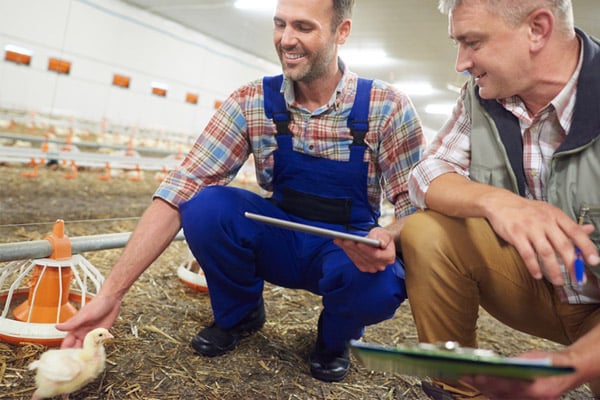Animal Welfare at Cargill
Our commitment to animal care and handling
For nearly 160 years, we have been guided by the philosophy that doing the right thing is beneficial to all and helps our customers and communities thrive as we nourish the world in a safe, responsible and sustainable way.
As we deliver sustainable feed and food around the world, we understand and embrace our responsibility to ensure animals are treated with respect and dignity.
The proper care and handling of animals is critically important as the global population and demand for nutritious, affordable and high-quality protein increases.
Cargill takes pride in being an industry leader in animal welfare, and we maintain high standards for our suppliers and ourselves. We employ a zero-tolerance policy on animal abuse. We do not tolerate abusive behavior directed at animals by employees, suppliers, transporters or others in our supply chains.
We work with a variety of stakeholders, including farmers and ranchers, customers, NGOs, academics, scientists and veterinarians to ensure that we employ best practices.

We are committed to continuous improvement in our animal welfare efforts, with our philosophy based on meeting or exceeding the Five Domains model, as created by Professor David Mellor and colleagues. These five domains provide a comprehensive platform that incorporates functional and behavioral components which, considered as a whole, provide an assessment of an animal’s overall mental state – also known as the welfare of the animal.
The five domains
The Five Domains is an advanced conceptual animal welfare framework that includes the promotion of positive mental states through four domains: nutrition, physical environment, health and behavioral opportunities, which ultimately contribute to the fifth domain, the mental state of the animal.
Nutrition
The animals under our care are provided with nutritionally balanced diets at all stages of life. They are always given free access to fresh, clean water.
Physical Environment
Rearing conditions are carefully monitored, controlled and managed to provide animal comfort, which allows them to thrive, and all employees responsible for handling animals are trained on humane and low-stress handling.
Health
The animals under our care are provided with veterinary oversight to prevent and treat any pain, injury or disease. Keeping animals healthy is a top priority.
Behavioral Interactions
Continuous improvement and research in environmental rearing conditions and our overall commitment to good welfare practices, such as working toward allowing animals the freedom to express their natural range of behaviors.
Mental State
Alignment to and prioritization of each of the previous four domains enables overall wellness for animals within our care. Cargill does not tolerate the mistreatment of animals.
As the basis for the Five Domains, Cargill also acknowledges the importance of the Five Freedoms welfare framework. We continue to honor these priorities in our animal welfare approach even as we pursue the Five Domains, which is an advancement of the Five Freedoms framework. The adoption of the Five Domains allows Cargill to identify new opportunities and positive animal behaviors, leading to an increased understanding of animal needs and ideal welfare outcomes.
